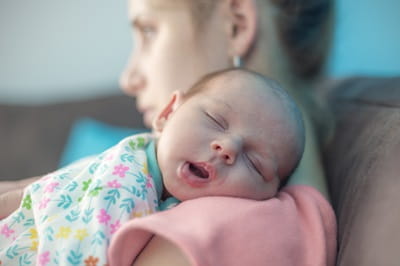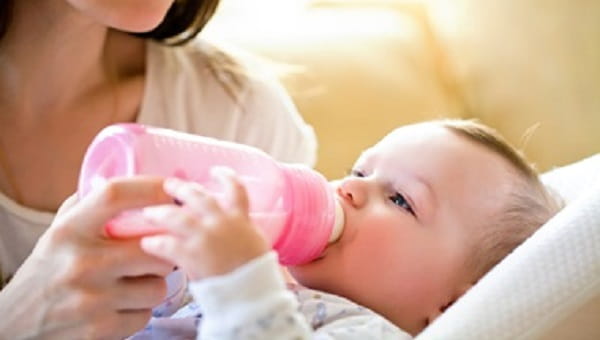The Baby Blues
Now that you’re a new mom, are things different than you expected? Do you feel sad, fearful or anxious? Many women have trouble finding the energy to care for themselves, their infants and their families. Some may even have feelings about harming themselves and their children. If any of this sounds like what you’re going through, there is help. You’re not alone!
But Why?
Approximately 10 percent of postpartum women develop anxiety or depression. Your body undergoes many hormonal changes during and after pregnancy. When you’re pregnant, your body produces estrogen and progesterone in large amounts. But in the first 24 hours after childbirth, hormone levels drop rapidly, and these changes may lead to depression. Along with the dramatic changes — new responsibilities, pressure to be the "best" mom — and you have a recipe for the baby blues or depression. Babies require a lot of care, so it’s normal for you to be worried or tired.
The Baby Blues
The baby blues affects up to 80 percent of moms. The good news is that for most women, the baby blues is temporary – it’s usually gone within a week after childbirth. You may have these symptoms:
- Mood swings
- Feel sad, anxious or overwhelmed
- Crying spells
- Loss of appetite
- Trouble sleeping
Some ways to handle them can include:
- Sleep! When your baby naps, so should you.
- Don’t try to be Supermom. No one can do it all – do what you can and save the rest for later, or get help from your spouse/partner, family and friends.
- Exercise
- Join a support group for new moms
Postpartum Depression
The symptoms of postpartum depression last longer than the baby blues and are more severe. Postpartum depression occurs in about one in eight women and can begin anytime within the first year after giving birth. Symptoms of postpartum depression can include the same symptoms of the baby blues, but also:
- Sleeping too much
- Trouble concentrating, remembering things or making decisions
- Having trouble bonding or forming an emotional attachment with your baby
- Anger/rage
- Loss of interest in caring for yourself (dressing, bathing, fixing your hair), or caring about things that you used to enjoy
- Withdrawing from/avoiding friends and family
- Persistently doubting your ability to care for your baby
- Thinking about harming yourself or your baby
How Can You Tell?
Only a health care provider can diagnose postpartum depression. Because symptoms are broad and may vary, your doctor can help you figure out whether your symptoms are because of postpartum depression or something else. If you experience any of these symptoms, you should check in with your doctor right away.
What Can I Do About It?
Screening for depression after pregnancy should be a routine part of your health care. Health care professionals—such as your doctor, your baby’s doctor, a nurse or other health care provider—are familiar with the types of depression new moms face. They know how to help and can explain your best treatment options. Whatever you and your doctor decide, it’s important that you stick to your treatment plan.
What if Postpartum Depression Is Left Untreated?
Without treatment, postpartum depression can last for months or years. In addition to affecting your health, it can interfere with your ability to connect with and care for your baby. It also may cause your baby to have problems with sleeping, eating and behavior.
Anyone may become depressed after having a baby. If you’re feeling depressed, don't suffer alone. Please tell a loved one and call your doctor right away. For continued support, visit BayCareEvents.org to find a support group near you.





